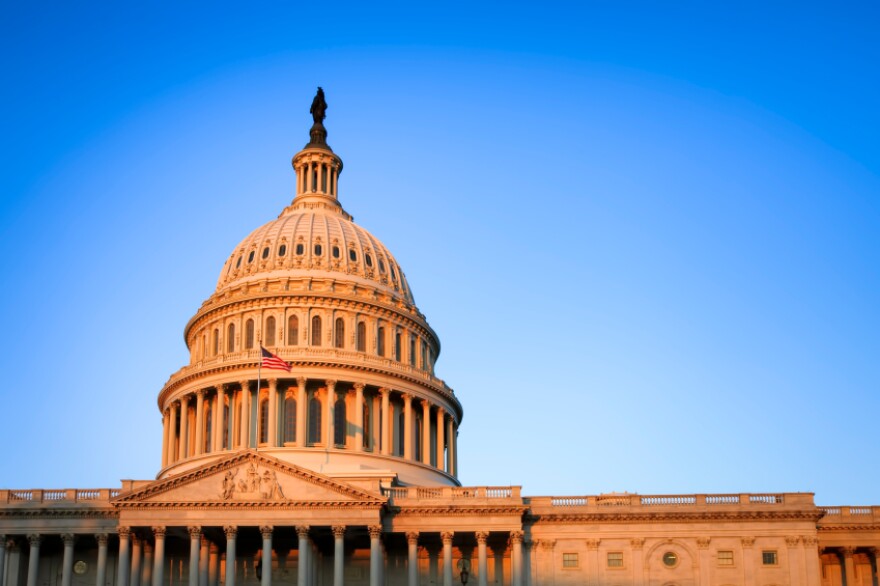All three members of Vermont's Congressional delegation say they support the outline of a new proposed gun control bill. But the Vermont Federation of Sportsmen's Clubs say the measure won't be effective in reducing gun violence.
Two weeks ago, Democratic Sen. Patrick Leahy and Independent Sen. Bernie Sanders stood with roughly two dozen Senate Democrats on the steps of the Capitol Building in Washington to show their support for what they called a "common sense" approach to gun legislation. They said the bill was needed in response to the mass shootings that have taken place in this country over the past few years.
The legislation closes what they call the “gun show loophole." Under current law, all licensed gun dealers selling firearms at these shows are required to conduct background checks, but private dealers are exempt if they are "adding or subtracting" to their personal collections.
Congressman Peter Welch thinks this exemption should be eliminated.
"I think there's room to respect the Second Amendment, but also have common sense gun legislation where we really take steps to try to keep guns away from people who just flat out shouldn't have them,” Welch says. “So the background check legislation is important and getting rid of the ‘gun show loophole’ is important."
At the recent Democratic presidential debate, former Secretary of State Hillary Clinton was very critical of senator Bernie Sanders for voting against the Brady Bill and for supporting legislation that exempted gun manufacturers from liability laws.
"I think there's room to respect the Second Amendment, but also have common sense gun legislation where we really take steps to try to keep guns away from people who just flat out shouldn't have them." - Rep. Peter Welch
Jeff Weaver, Sanders' campaign manager, says Sanders strongly supports this new proposal.
"It just makes sense in the context of a gun show to require that all the sales that are done at the show be done with a background check,” Weaver says. “So this is not any different from a background check that is done if you go into a gun store."
Evan Hughes, the vice president of the Vermont Federation of Sportmens' Clubs, bristles at the concept of the "gun show loophole" because he says current law clearly exempts private collectors from the background check requirement.
“These background checks are not going to avoid the problems that have happened with crime, and criminals just don't comply with checks,” Hughes says. “They don't comply with the law. That's why they're called criminals."
The proposed legislation also makes gun trafficking a federal crime with penalties up to 15 years in jail. Sanders campaign manager Weaver thinks it's important to create this new type of crime.
"These background checks are not going to avoid the problems that have happened with crime, and criminals just don't comply with checks." - Evan Hughes, Vermont Federations of Sportsmen's Clubs vice president
“I think it makes sense to have appropriate penalties,” Weaver says. “In addition to that, it makes sense to make the [law] very, very clear on its face so that people know exactly what will and what will not get you into trouble with the law."
But Evan Hughes says the bill isn't needed because it's already a crime to use false information when filling out a background check – although the penalties for this infraction are less than the proposed law.
Hughes says he seriously doubts that any of the mass shootings would have been prevented if this proposed bill had been in place. Congressman Welch says this is a valid point but he still thinks this approach is needed.
"That argument has some truth to it. You pass a law -- that doesn't mean what the law says will be complied with, but it doesn't mean that there isn't a serious problem,” Welch says. “And I do believe that people who are mentally ill, people who are criminals, people who are domestic abusers they shouldn't have guns."
There is one thing that both sides do agree on: the need to commit more resources to community mental health programs. Evan Hughes says it should be a top priority.
"Our mental health system isn't dealing with problems that need to be dealt with,” Hughes says. “There needs to be more treatment for people that need it and in that capacity probably get a lot of support from the common citizen."
Backers of the Senate bill say they hope to bring it up for action by the end of the year.






